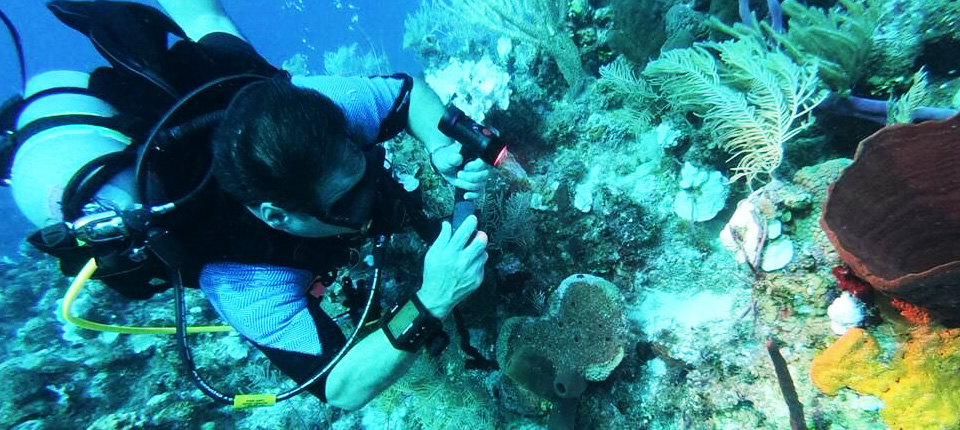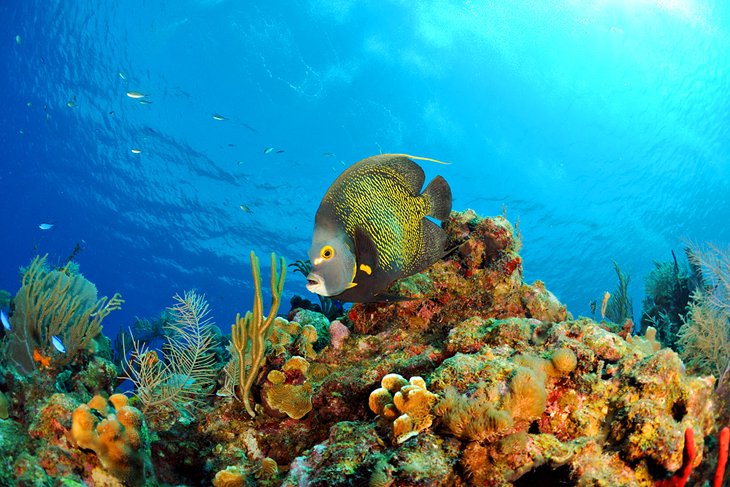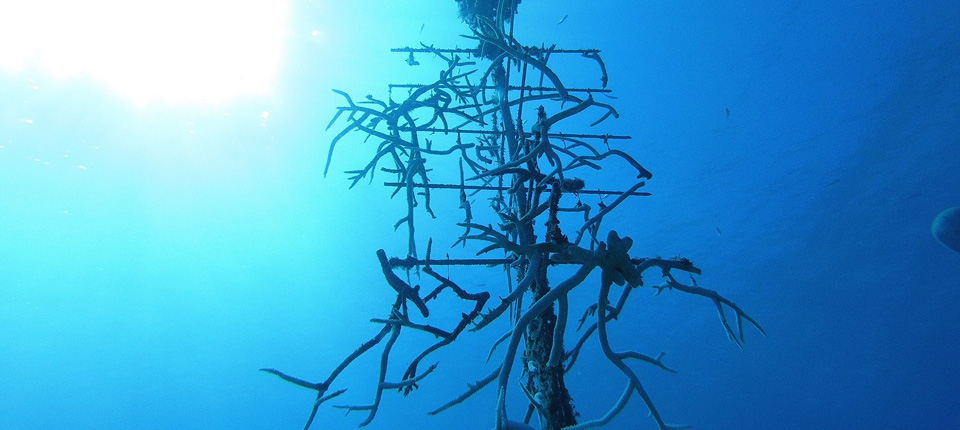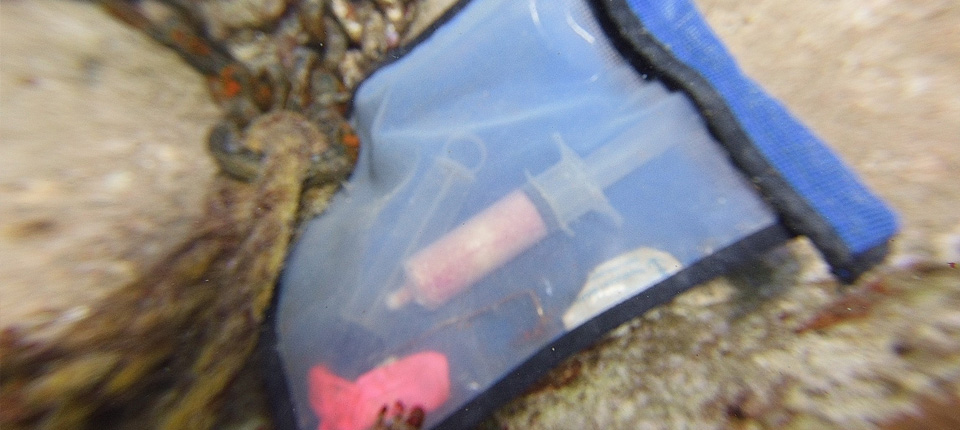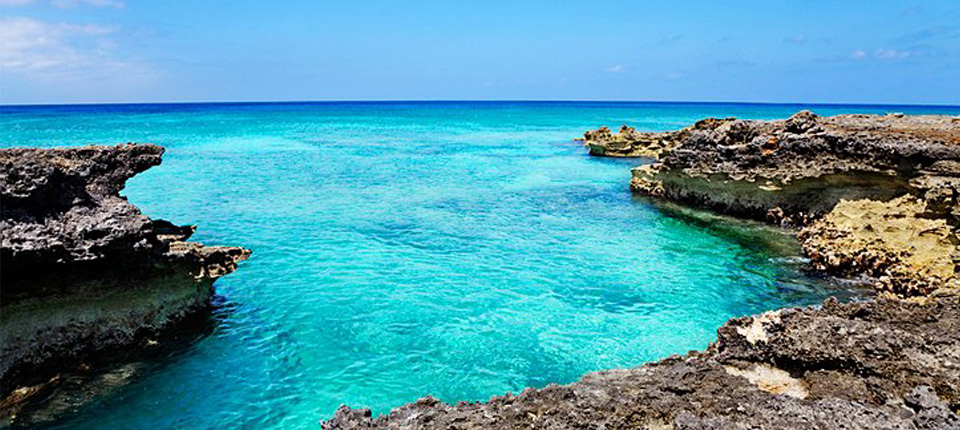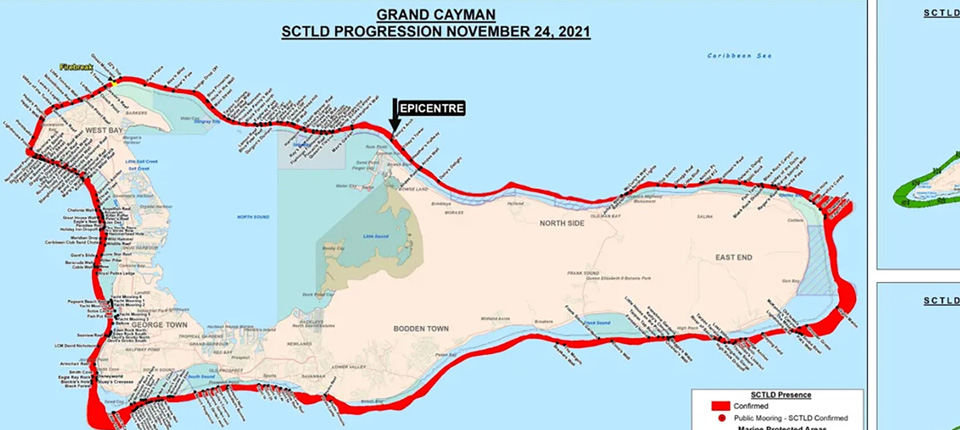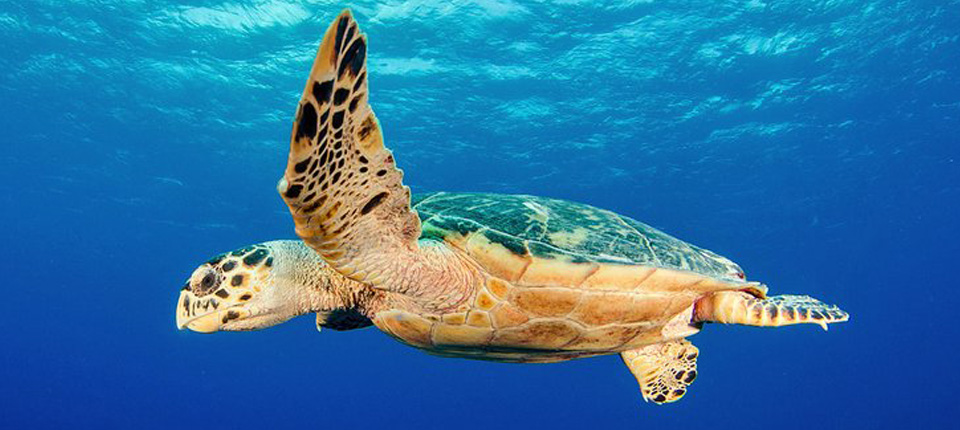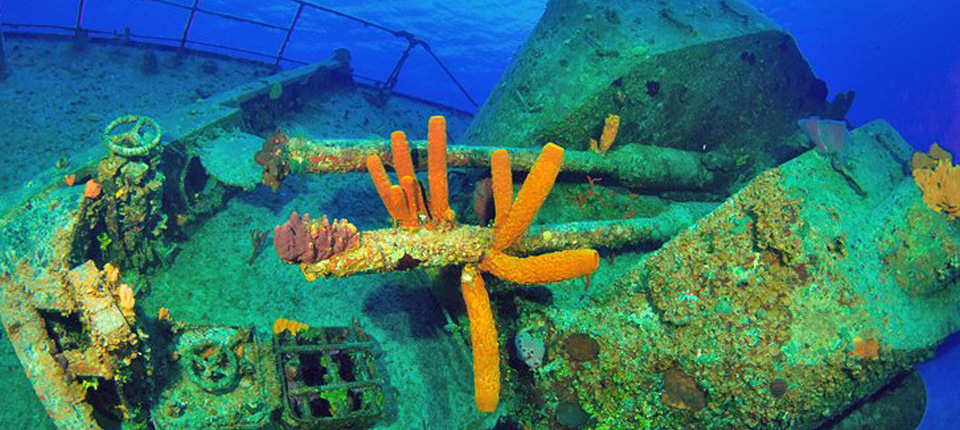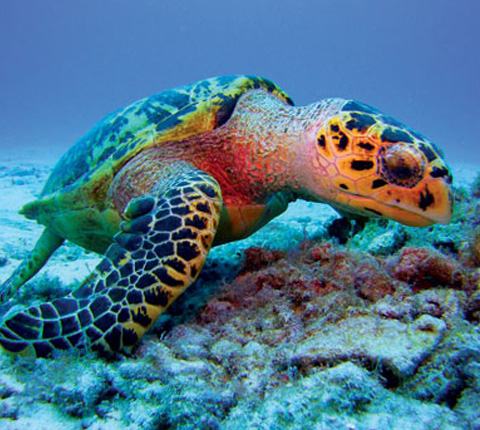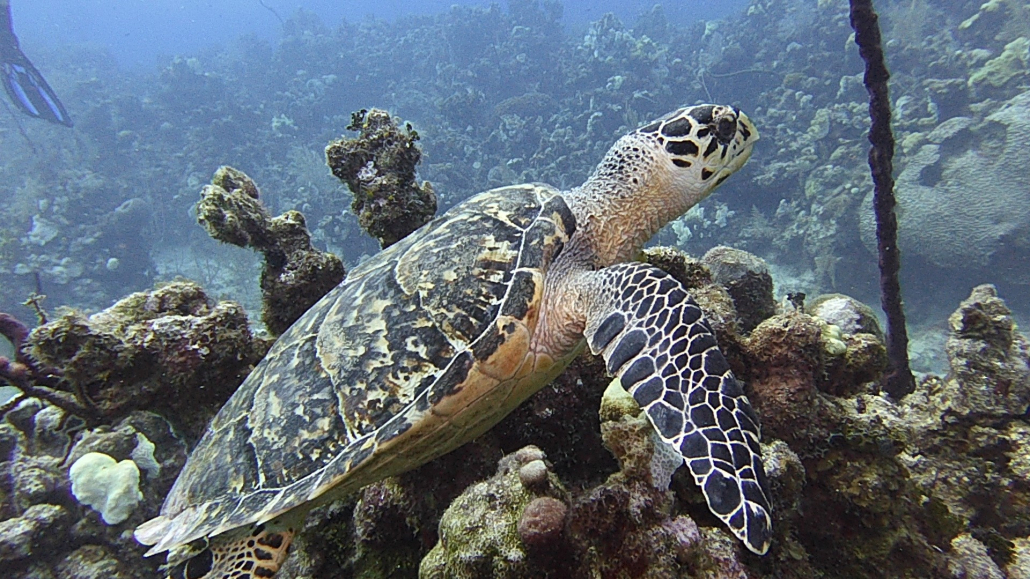Citizen Science Research into Stony Coral Tissue Loss Disease (SCTLD)
By Michael P. Carvalho, Esq. and Christopher J. Miller, B.S., M.S Eng.
November 6, 2023 – Stony Coral Tissue Loss Disease (SCTLD) is a deadly coral disease affecting over twenty-five species of hard coral resulting in rapid tissue mortality and death of entire colonies. The disease was first reported on Florida’s reefs in 2014 and has subsequently spread throughout multiple countries in the Caribbean, to include the Cayman Islands, due to its high transmissivity. SCTLD causes lesions to appear on hard corals following increasing bleaching events associated with dramatic increases in surface water temperatures caused by Climate Change. Infected corals rapidly lose live tissue and entire colonies can be wiped out in weeks to months (Precht et al 2016). The Cayman Islands government is particularly concerned about the spread of SCTLD from Grand Cayman where the disease is now widely established to Cayman Brac and Little Cayman, where SCTLD has not yet gained a foothold.
Cause
The cause and method of SCTLD transmission are currently unknown but are the subject of intense research. Previously, researchers believed that SCTLD is a bacterial pathogen that grows rapidly and is transmitted by direct contact and ocean currents. (Aeby et al, 2019). More recent research suggests that a viral pathogen may be disrupting the coral-zooxanthellae symbiosis, a type of photosynthesis algae living in coral tissues. (Landsberg et al 0202; Work et al 2021). There is no known cure for SCTLD, which has a mortality rate of 60%-100% (Precht et al 2016), although studies are underway to determine whether topically applied antibiotics may be effective.
Affect
SCLTD negatively affects coral density and species diversity, reducing the overall health of coral reefs and resulting in significant degradation to coral reef ecosystems. The loss of coral reefs (already imperiled by rapidly warming ocean surface temperatures and physical damages from intense weather events) affects not only the health of the reef, but also the myriad of economic interests they support. Such interests include tourism, coastal protection, food, and recreation, among others impacts. In the Cayman Islands, tourism is a mainstay of the economy, accounting for approximately 70% of GDP. (Moody’s Analytics, www.economy.com/cayman-islands). With the main sources of income in the Cayman Islands consisting of financial services, tourism and real estate sales and development, the loss of once pristine coral reefs upon which much of the tourist economy is based, would be devastating to the economy.
Response
All hands-on deck. Local governments throughout the Caribbean are collaborating with regional and international partners to continue to study the causes and effects of SCTLD on coral reefs. The Cayman Islands Government Department of the Environment (DoE) is “…actively training volunteers on disease identification and how to use treatment options while expanding our citizen scientist reporting efforts to engage the public in helping us identify diseases coral.” DoE regularly collects samples for epidemiological research and applies topical treatment of Amoxicillin + Base2B on affected corals within defined study areas. (doe.ky/marine/sctld.).
The Cayman Islands government is also engaged in efforts to grow new coral using fragments harvested from healthy reefs and grown on “coral trees” suspended in the water column in nurseries. https://missionblue.org/2017/03/cayman-islands-coral-nursery-conservation-program/
October 2023 Photos – Cayman Islands
Citizen Science Research into Stony Coral Tissue Loss Disease (SCTLD)
For further information:
Tammi Warrender is the Lead Coordinator of the SCTLD Response Project. She can be reached by email: Tammi.Warrender@gov.ky
Report SCLTD and submit photographs: SCTLD Report Caribbean.
Urgent issues should be reported to the SCTLD hotline at +1-345-926-0680.
_________________________________________________________________
Michael P. Carvalho, Esq. is an environmental attorney representing a wide range of clients in environmental and real estate matters nationally and internationally. He is a former environmental consultant and serves as President of Carvalho & Associates, P.C with offices in Boston and Atlanta. He can be reached at mpc@carvalholawfirm.com.
Christopher J. Miller is a former environmental consultant and currently serves as Director of Natural Resources of the Town of Brewster, Massachusetts.
METRO ATLANTA OFFICE
707 Whitlock Ave, SW | Suite E-19 | Marietta, GA 30064
BOSTON COASTAL OFFICE
Post Office Box 1584 | Manchester, MA 01944
Legal Notice | Contact Us | Privacy Policy
© 2024 All Rights Reserved on original work.

